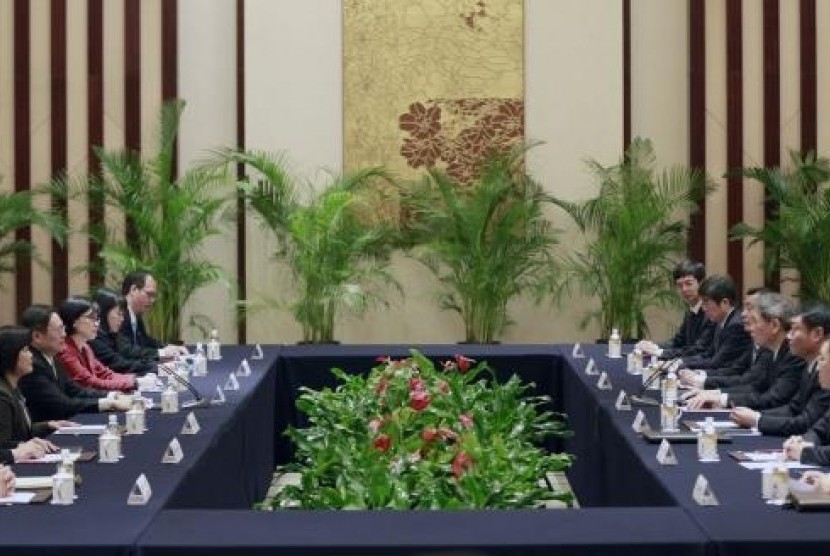REPUBLIKA.CO.ID, BEIJING - China and Taiwan began their highest-level official talks since 1949 on Tuesday, negotiations that could lead to the two setting up representative offices, though sensitive political issues are not likely to be broached.
The talks between Taiwan's Mainland Affairs Minister Wang Yu-chi and China's Vice Foreign Minister Zhang Zhijun, who heads the Taiwan Affairs Office, mark a big step towards expanding cross-strait dialogue beyond economic and trade issues.
Taiwan's Wang described his meeting with Zhang, in the eastern Chinese city of Nanjing, as "an unimaginable occasion in earlier years", China's official Xinhua news agency reported.
"Being able to sit down and talk is a really valuable opportunity, considering that the two sides were once almost at war," Wang said.
The mainland's Zhang told Wang that both sides should have "a little more imagination" regarding relations.
"We meet under great attention and expectations and bear great responsibilities," Zhang said.
Taiwan and China are also expected to discuss Taiwan's participation in international bodies and issues on medical care for Taiwan students in China, Wang said last month, though he ruled out talks on "sensitive political issues".
China's ruling Communist Party considers Taiwan a renegade province and has never ruled out the use of force to bring the island under its wing after taking control of the mainland in 1949. But economic ties have grown considerably in recent years.
Nanjing was China's capital during the rule of the Nationalists, until they fled to Taiwan in 1949 upon losing a civil war with the communists. The city is also the burial place of Sun Yat-Sen, the founder of modern China, who is revered by both mainland China and many in Taiwan.


